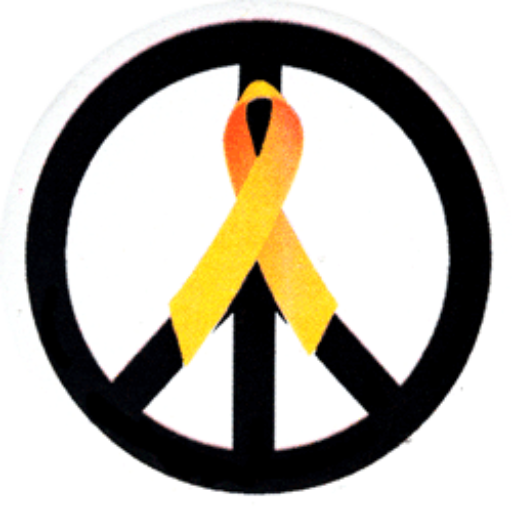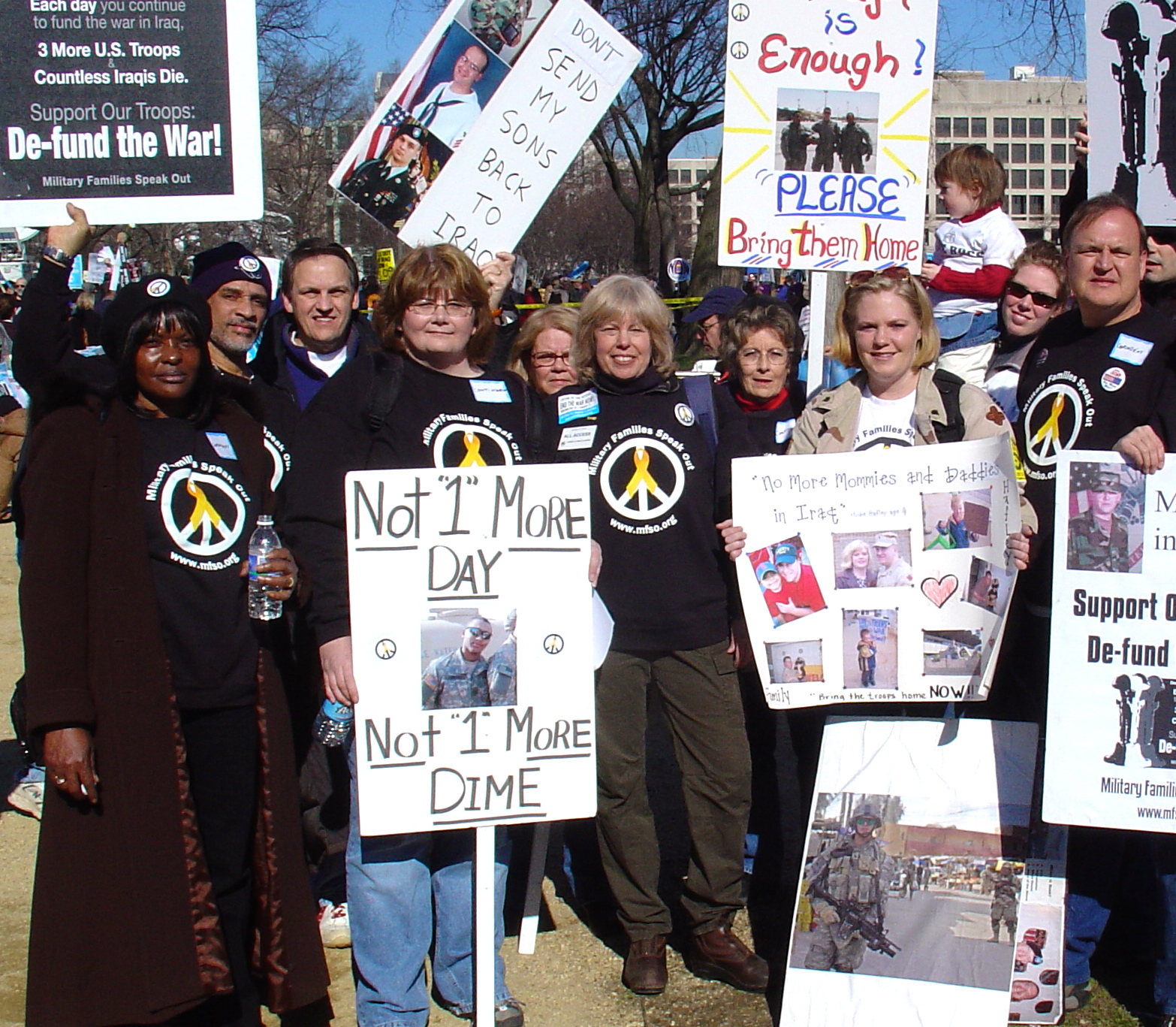This summer MFSO will launch the Military Families Speak Out Oral History & Archiving Project, and we want you to be part of it!
The MFSO Oral History & Archiving Project will record and preserve the story of MFSO: the experiences of the families, allies, and staff that were a part of it and the lessons learned in the only organization in U.S. history in which military families spoke out against a war.
From July through September of 2013, we will collect stories, writings, pictures, and videos from as many current and former MFSO members as possible. We will interview members on their experience with and reflections on MFSO. We will collect physical memorabilia to store at the Swarthmore Peace Collection, an academic archive that chronicles movements for peace and justice. Stored artifacts from the movement can include everything from banners and buttons to photos, old paperwork, and meeting notes. MFSO’s oral histories will also be stored at the Swarthmore Peace Collection and on an easily accessible website. Additionally, we are partnering with the StoryCorps Military Voices Initiative, a publicly-funded project which aims to tell the stories of the veterans of the Iraq and Afghanistan wars and their families. Participants in the Oral History Project may have the option to participate in StoryCorps as well.
HOW YOU CAN PARTICIPATE:
Every military family holds an important piece of the history of MFSO, whether you were an active member, a spokesperson, attended an event, or felt connected through reading the emails.
There are a number of ways you can share your story:
- Write your history: Using the MFSO Oral History Interview Guide, submit your written reflections on MFSO to mfsoarchives@gmail.com
- Submit video, audio, photographs, or other media to mfsoarchives@gmail.com, or contact us for a physical address and other options.
- Record an Oral History: Using the StoryCorps Military Voices Initiative question guide and/or the MFSO Oral History Interview Guide, partner with another MFSO member, family member, friend, or ally to make an audio recording of your experiences either in person or over the phone. Click here for full instructions on recording an interview, or email mfsoarchives@gmail.com for help.
- Organize a local “listening day” with other current or former MFSO members to reflect together on the question guides. If you have at least six MFSO members in your area interested in recording an oral history, we can work with StoryCorps to help you organize a listening day. Get in touch with mfsoarchives@gmail.com if you are interested.
- Donate artifacts to the Swarthmore Peace Collection: If you have physical memorabilia from your work with MFSO that you would like included at the MFSO Archive at the Swarthmore Peace Collection, click here for more information and full instructions.
We will also be reaching out to members individually for phone and in-person interviews, as well as arranging listening days in a number of cities. If you’d like to arrange an interview or help organize a local listening day, please email us at mfsoarchives@gmail.com
The MFSO Oral History and Archiving Project is directed by former MFSO staff members Samantha Miller and Nikki Morse with help from co-founder Nancy Lessin and former board members Adele Kubein and Jack Amoureaux, and in collaboration with the current MFSO Board of Directors. We appreciate and look forward to your participation. If you have questions, please email us at mfsoarchives@gmail.com.


